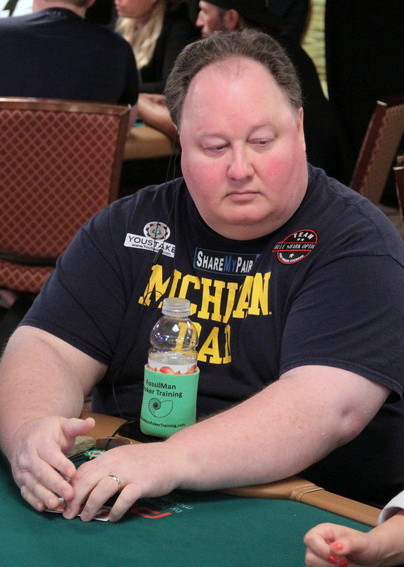






Greg Raymer: Did Being A Lawyer Help Me As A Poker Player?2004 WSOP Main Event Champion Talks About His Former Day Job |
|
|
Card Player Magazine, available in print and online, covers poker strategy, poker news, online and casino poker, and poker legislation. Sign up today for a digital subscription to access more than 800 magazine issues and get 26 new issues per year!

Greg Raymer
@FossilMan, or send me a message at info@fossilmanpoker.com.
Before I had a week of run-good at just the right time in 2004, I was a full-time patent attorney for 12 years. I was also a serious part-time poker player during this same period.
After winning the World Series of Poker main event, reporters would often ask, what was it about being a lawyer that helped me become a better poker player?
There are definitely some things about being a lawyer that might help with poker. If you are a trial lawyer, maybe you learned a lot about reading a jury, and figuring out what they were buying about the evidence you were presenting, and the arguments you were making on behalf of your client. And maybe those skills at reading a jury could transfer to the poker table, at reading a player’s tells. Or perhaps you do a lot of negotiating for your clients, and that also grew your abilities to read a player’s emotions.
In my case, I wasn’t a litigator, nor a negotiator. And there weren’t really any other skills I picked up as a lawyer that helped with my poker game. I always said this to those reporters, but I quickly followed up with something more important.
While being a lawyer hadn’t helped my poker game, being a poker player had helped dramatically at making me a better lawyer.
I think the greatest lesson you can learn at the poker table is to disassociate the effort from the result. If my opponent goes all-in preflop, and I call with aces, sometimes I will lose. And other times, if I raise all-in, and my opponent calls with 2-7 offsuit, they will win. Of course, that doesn’t mean my call with aces was a mistake, or their call with 2-7 was correct. I got punished for a smart call, and they got rewarded for a not-so-smart call.
In the rest of your life, just like in poker, you sometimes get punished for smart decisions, and sometimes get rewarded for poor decisions. Life has a lot of variance, just like poker. You can make smart investments, and still lose money. You can make a silly investment, and hit the jackpot. You can be smart about whom you choose as your life partner, and still end up unhappy in your relationship. You can make smart decisions in your job, in your personal life, in any arena, and not always get a fair, positive result.
However, the more you make smart decisions, the more likely you will get rewarded for them. If you make smart decisions in your job, it is less likely you will be fired, more likely you will be promoted, and more likely you will be happy in your job. The more you make smart decisions in how you treat your friends and loved ones, the more likely you will be happy in those relationships.
There is a lot of variance in all aspects of life. The only thing you can control is the decisions you make. You can’t force that perfect company with that perfect job to hire you. You can only do your best to get that dream job, by studying, practicing, and improving your skills. You can’t force the person of your dreams to fall in love with you. You can only be the best possible version of yourself, and hope this is attractive to them.
And so it is in poker. All you can do is make the best decision every time it is your turn. If you intelligently select when to fold, raise, bet, and call, every time, you will be a winning player. Even if you don’t win today, or tomorrow, if you consistently make the smartest decisions, you will win.
 Just like in business and life, you must work hard, train hard, and constantly strive to improve your skills. Keep trying, keep working, study away from the table, read, learn, and continue to do so. Through these efforts, you will make smart decisions. Winning results will eventually follow. Now, go out there, and play smart! ♠
Just like in business and life, you must work hard, train hard, and constantly strive to improve your skills. Keep trying, keep working, study away from the table, read, learn, and continue to do so. Through these efforts, you will make smart decisions. Winning results will eventually follow. Now, go out there, and play smart! ♠
Greg Raymer is the 2004 World Series of Poker main event champion, winner of numerous major titles, and has more than $7 million in earnings. He recently authored FossilMan’s Winning Tournament Strategies, available from D&B Publishing, Amazon, and other retailers. He is sponsored by Blue Shark Optics, YouStake, and ShareMyPair. To contact Greg please tweet @FossilMan or visit his website.
